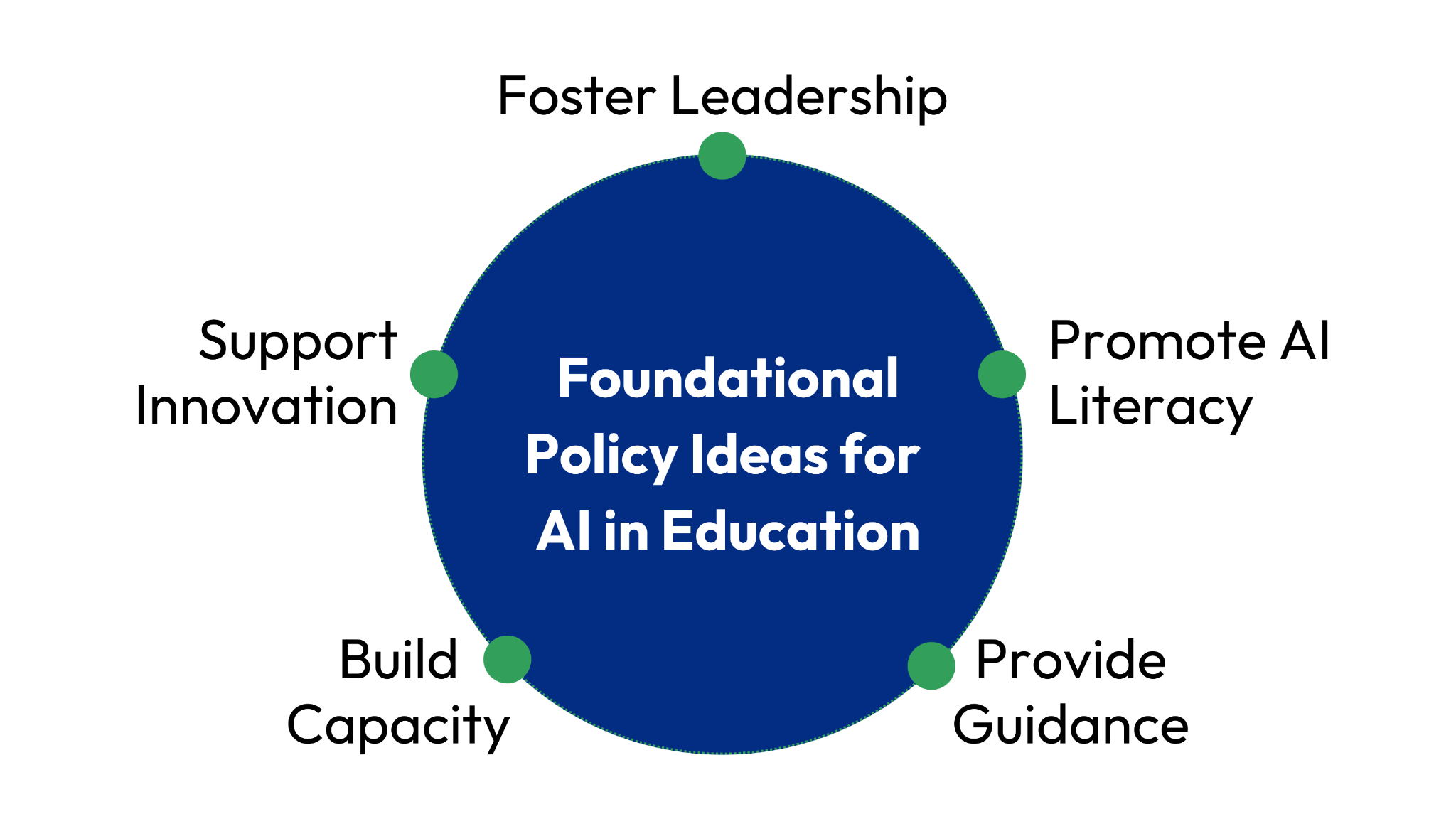How we can prepare for the future with foundational policy ideas for AI in education
Education leaders and policymakers face the challenge of leading their communities when artificial intelligence (AI), including education, is becoming increasingly prominent in society.
Understanding AI is critical for crafting effective policies that promote responsibility and equity in how AI tools can be accessed, how AI-enabled learning experiences are designed and how students use AI in the classroom. Integrating AI into society should augment, not replace, human interaction and decision-making.
“Leveraging AI’s transformative power, we can drive human progress by revolutionizing education globally, democratising access and preparing future generations for the challenges and opportunities of a rapidly evolving world,” says Narmeen Makhani from the Education Testing Service.
Key policy approaches
The Khan Academy’s chief learning officer, Kristen DiCerbo, believes AI holds the promise to tackle many of the persistent problems we see in education, including unfinished learning and teacher burnout.
“By providing access to 1:1 learning support and true teacher assistance, including using data to drive recommendations, we can improve learning outcomes for all,” she says.
Policymakers and education leaders can prepare the future workforce by implementing five foundational policies to help realize the potential benefits of AI in education while mitigating the risks.
- Foster leadership: Create an AI in education task force with experts, educators, students, community members and policymakers to guide policy and oversee implementation. These task forces can drive innovation and ensure AI aligns with educational goals.
- Promote AI literacy: Integrate AI concepts into curricula and teach students to evaluate AI and its outputs critically. Students can become informed consumers and creators of AI-powered technologies by understanding AI’s potential and limitations.
- Provide guidance: Establish clear guidelines for the safe and responsible use of AI in education. We must ensure that AI tools are used ethically, focusing on student privacy and responsible usage. By providing guidance, we can ensure that AI enhances learning experiences without compromising safety or privacy.
- Build capacity: Support educators and staff in integrating AI into teaching, learning, and school management and operations. Professional development programmes can help staff understand AI, its limitations and ethical considerations. By building capacity, we can ensure that leaders develop the expertise to serve their communities and that all staff are equipped to use AI responsibly and effectively throughout the education system.
- Support innovation: Fund research and development to advance AI in education pedagogy, curriculum and tools. By supporting innovation, we can drive the development of new AI technologies that enhance learning experiences and improve student outcomes.

Five key policy ideas for AI in education integration. Image: TeachAI
“Transforming education requires the engagement of all those serving school systems. The TeachAI initiative is honoured to bring education leaders, policymakers, technology creators, researchers, and civil society together to create resources such as these foundational policy ideas,” says Pat Yongpradit, chief academic officer of Code.org.
Working together to foster leadership, promote AI literacy, provide guidance, build capacity and support innovation, we can ensure that AI enhances education for all students.
As the World Economic Forum’s Saadia Zahidi says: “As we navigate the uncertainties of AI in education, TeachAI’s guidance in this swiftly evolving environment becomes indispensable. Embracing a multi-stakeholder approach to developing and implementing these foundational policies will be paramount for optimising AI’s benefits while mitigating associated risks.”
Let’s seize the opportunity to harness the power of AI and create a brighter future for education.
Republished from the World Economic Forum in accordance with Creative Commons Licensing.




